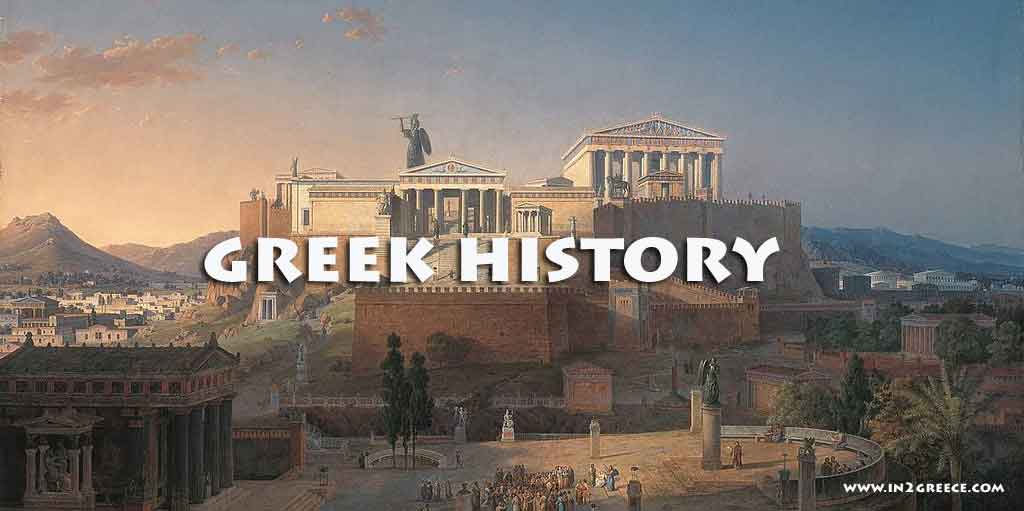Greece under the Ottoman rule

During this period, Greece was known as Rumeli, a term that referred to the region of southeastern Europe that was under Ottoman control. The Ottomans conquered much of Greece over the course of several centuries, with the fall of Constantinople in 1453 marking a major turning point in the region’s history.
Under Ottoman rule, the Greeks were considered part of the Rum Millet, a community of Orthodox Christian subjects of the Ottoman Empire. While the Ottomans allowed the Greeks to maintain many of their own traditions and customs, they also imposed restrictions on them, such as discriminatory taxes and laws that limited their ability to hold positions of power.
Despite these restrictions, the Greeks still managed to maintain elements of their own culture and identity. Greek language, literature, and religion flourished, and Greek merchants played an important role in trade throughout the Ottoman Empire. In some cases, Greeks were able to rise to positions of prominence within the Ottoman government and military, although these cases were relatively rare.
Throughout the Ottoman period, Greece was subject to frequent raids and incursions by foreign powers, including pirates and neighboring states. The Greeks also faced periodic rebellions and uprisings against Ottoman rule, most famously during the Greek War of Independence (1821-1832).
Despite the challenges and hardships faced by the Greeks under Ottoman rule, the period also saw the construction of many impressive monuments and buildings throughout the country. These include Ottoman-era mosques, fortresses, and public buildings, many of which are still standing and remain popular tourist attractions today.
Overall, the Ottoman period in Greece was marked by a complex relationship between the Greeks and the Ottomans. While the Ottomans imposed restrictions on the Greeks and controlled much of their territory for centuries, they also allowed Greek culture and traditions to flourish, and Greece was ultimately able to emerge from this period with a strong sense of identity and independence.
[ez-toc]
Key ellements of the Ottoman period
Conquest and establishment of Ottoman rule: The Ottoman Empire began its conquest of the Byzantine Empire in the late 14th century and gradually expanded its control over Greece. The city of Thessaloniki fell to the Ottomans in 1430, and by the mid-15th century, most of Greece was under Ottoman rule.
Administrative organization
Greece was divided into administrative units called “sanjaks” and “voyvodaliks,” which were further divided into districts called “kazas.” Each administrative unit was governed by an Ottoman official, usually a bey or a pasha. The local Greek Orthodox Church played a significant role in the administration of Greek communities.
Social and cultural life
Greek society under Ottoman rule was divided into various religious and ethnic groups. The majority of the population was Greek Orthodox Christians, but there were also Muslim Turks, Jews, and other minorities. Greek Orthodox Christians were considered “dhimmis,” non-Muslims who were protected but had certain restrictions. Despite these restrictions, Greek culture and language continued to flourish, and Greek communities maintained their traditions and customs.
Economic impact
The Ottoman period had a mixed impact on the Greek economy. While there were periods of prosperity, such as during the 18th century, there were also periods of economic decline and oppression. Greeks were heavily taxed by the Ottoman authorities, and many were subjected to forced labor or conscription into the Ottoman army.
Greek resistance and independence movements
Throughout the Ottoman period, there were several Greek uprisings and resistance movements against Ottoman rule. The most significant was the Greek War of Independence, which began in 1821 and led to the establishment of an independent Greek state in 1830. The war was fought by Greek revolutionaries, known as the Filiki Eteria, and it received support from other European powers.
Architecture and urban planning
Ottoman architecture and urban planning had a lasting impact on Greek cities and towns. Many Greek cities, including Athens and Thessaloniki, saw the construction of mosques, public baths (hammams), and other Ottoman-style buildings. The Ottomans also left their mark on the urban layout and infrastructure of these cities.
Legacy
The Ottoman period in Greece left a complex and lasting legacy. It influenced the Greek language, cuisine, music, and customs. It also shaped the relationship between Greece and Turkey, which continues to have political and cultural implications today.
Overall, the Ottoman period in Greece was characterized by a mixture of cultural assimilation, economic exploitation, and resistance. It played a significant role in shaping Greek history and identity, leading to the eventual emergence of an independent Greek state.
